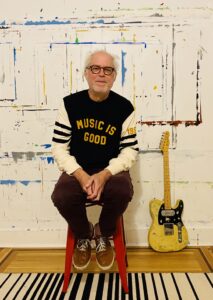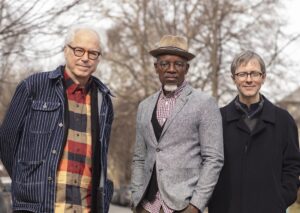The song You Only Live Twice (from the James Bond film of the same name) would have more kitsch quotient than improvising potential to most ears. Not Bill Frisell. The one constant in the work of the jazz guitarist – a peer of John McLaughlin, Pat Metheny and John Scofield – has been eclecticism, reflecting both his diverse childhood tastes and ever-expanding horizons as a player and composer.

“Part of it is just being more open to whatever it is that I’ve heard at any moment in my life,” he says via Zoom. “When I was younger, I was much more worried about what people would think was cool or fashionable or whatever, and as I’ve gotten older, I couldn’t care less about that. It’s more about what touches me, and just putting it out there.”
Not only can Frisell still harness the remembered impact of the Bond film on his young self, he also appreciates the song’s inherent craft. “The closer you look at some of these things,” he observes, “the deeper it gets. Because it was popular doesn’t mean it was bad.”
Children’s brimming imaginations seem to become stifled with age, and when I suggest to Frisell that being an artist may partly be about reaching adulthood with the imagination intact, he says he consciously clings to it: “Remembering when you’re a kid, and you see something for the first time; just the excitement of discovering something new. I think it’s really important, not just for artists, but anybody, whatever we’re doing, whether it’s mowing the lawn or cooking a meal, to just try to hold on to that.”
The band he’s bringing to Australia once again consists of bassist Thomas Morgan and drummer Rudy Royston, who still surprise him every time they play. “If it ever gets like you know what’s going to happen,” he says, “then I think you have to move on to something else.”

Beyond the intra-band trust required to take the risks that create surprises, there’s a related issue of reaching – and staying in – the fragile zone where the music almost seems to play itself. “That’s definitely one of the biggest challenges,” Frisell agrees, and he tells a story about playing ping pong with his daughter, when, rather than scoring, they aimed to sustain a 100-shot rally. After many false starts, they found a rhythm, and eventually sailed past 100, 200, 300, all the way to 608, at which point he dared think they could reach 1,000. “At that moment, bam! I missed it,” he says. “That happens when I’m playing [music]. It’s tricky. It’s like you’re flying or something, and then if you realise that you’re flying – uh-oh. Crash! I suddenly realise I’ve just done something that I’ve never done before, and as soon as I do, it throws me off. Maybe I’m better at it, but there’s always that struggle with whatever mental stuff is going on.”
Eliminating mental noise is also key to his composing. “That’s an amazing feeling when it just starts, and you don’t know where it’s coming from,” he enthuses. “One note will just lead you to the next somehow. When my daughter was beginning in school, and they were teaching the kids to read and write, they told her not to worry about spelling, and it really made sense: just let it come out, and then you can fix it later. I really experience that with writing music. The worst thing you can do is judge it right when you’re in the midst of it.”
Bill Frisell Trio, City Recital Hall, October 22.
https://www.cityrecitalhall.com/whats-on/events/bill-frisell-trio/